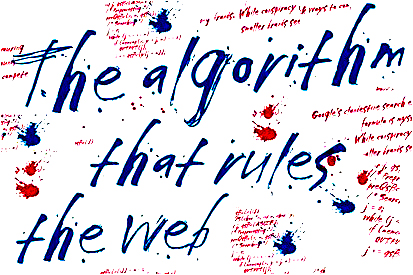I think one of the most interesting stories of the 2010s will be whether my generation puts an end to “gotcha journalism” or makes the problem even worse than it is today.
The classic definition of gotcha journalism usually refers to an interview style where the interviewer tries to trap the interviewee into saying something that would be damaging to themselves or their cause. It has been around since the early 80s and became firmly rooted into our political and popular culture since then.
With the rise of the Internet, journalists, bloggers and citizens have taken gotcha journalism to new levels. The barrier to entry is much lower: instead of having to secure an interview with someone in order to trap the interviewee, the new breed of gotcha journalism uses the Internet to sift through all of the statements that a person has made in their entire life to try to paint them in a bad light.
Now, bloggers go through politicians’ every public statement for any misspeak or inaccuracy and then try to crucify them. It started with John Kerry being labeled a “flip-flopper,” moved to George Bush‘s butchering of the English language and more recently, led President Obama’s Green Energy Czar to quit because of statements he made almost ten years ago. When President Obama misspoke on the campaign trail, saying that he had visited all 57 states, right wing bloggers tried to make it seem like Obama was stupid. When Sarah Palin burst onto the national scene, left wing bloggers and some in the media sifted through her previous public statements to search for any inaccuracy.
It seems like 75% of the news stories I read about each day have to do with some politician getting raked over the coals for some statement he just made that is different from a statement he made a long time ago. Many times, the person leveling the charge is a fellow politician, along with the media and the blogosphere.
My generation is the first generation to be online from an early age. We first interacted with email, then instant messaging, then social networks and now blogs. We created (and are still creating) vast amounts of data about ourselves, much of which is stored online. We have archived AIM conversations from when we were in 6th grade, digital pictures from high school and college that are online and we all have our dumb Facebook wall posts that we made throughout our college years.
Many of us have blogs on wordpress or blogger and many more have microblogging accounts on services like Twitter where we make observations and pithy comments about our daily lives. I know I’ve changed alot since I was in 6th grade and I assume I will change almost as much between now and the end of the 2010s. During the next decade, as people in my generation get older and become leaders in business, politics and culture, will we still be subjected to gotcha journalism like our public figures are today?
One argument is that since everyone has all of this content online, we will become desensitized to people’s dumb or incorrect statements from when they were young. Everyone has pictures of themselves on Facebook that they wished never made it online. Everyone is going to have a poorly thought out wall post that could be taken out of context, or a pithy remark on Twitter that does not stand the test of time. Anyone who blogs about anything interesting will be majorly wrong about something. Will millennials become bored by the new gotcha journalism because everyone has something online that could make them look bad?
On the other hand, millennials may just make gotcha journalism even worse than it is today. Since everyone has created gigabytes of online content, bloggers and the media will have an easier time digging up dirt on anyone who enters the public eye. Imagine being able to see the new candidate for Governor at a boozy college party or getting a transcript of his AIM conversations with his best friend or girlfriend from high school. The media, bloggers and most of all, the citizens will eat this stuff up. Ratings will go up and everyone will be happy, execpt for the public feature.
I hope that my generation helps start the shift away from gotcha journalism. I can’t imagine being shocked by the vast majority of the dirt that someone would dig up about a public figure online. I hope that millennials are willing to allow people to change their opinion and not be called a flip-flopper. I hope we will cut public figures some slack when their college photos get published to the major blogs and their old blog posts come back to haunt them. I’m not optimistic, but I am hopeful. If not, we will have some really boring politicians, business leaders and public figures!
Do you think millenials will help stop gotcha journalism or do you think the problem will get worse?

![Reblog this post [with Zemanta]](http://img.zemanta.com/reblog_e.png?x-id=ea344202-6df8-4fec-a753-cdea08ce82ae)

![Reblog this post [with Zemanta]](http://img.zemanta.com/reblog_e.png?x-id=649035e3-0e51-4ba2-ba9e-a8ce3369e7ed)